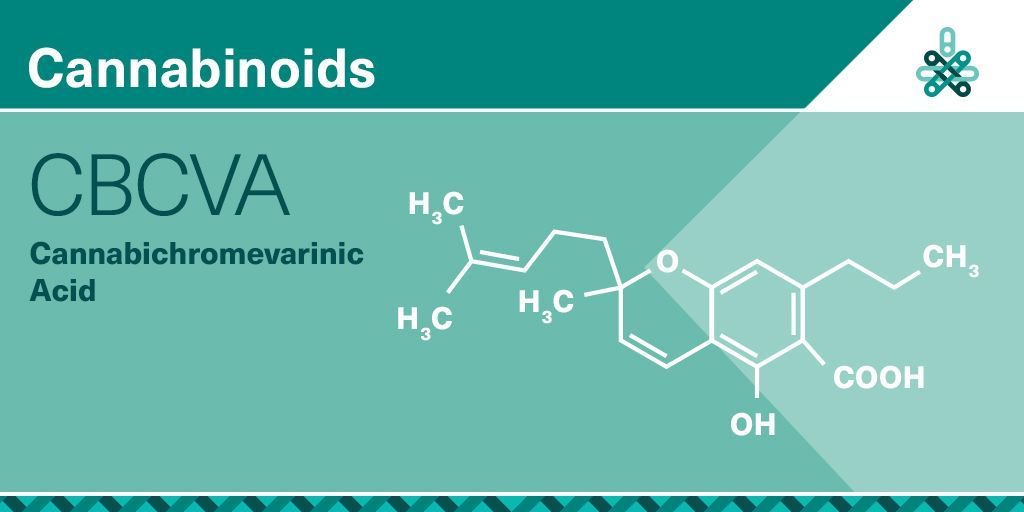CBCVA – Cannabichromevarinic acid – Uniquely Produced by Cannabis Plant

Cannabichromevarinic Acid
Marijuana contains several chemical compounds that offer different characteristics of the cannabis plant. For instance, Terpenes are associated with aromas and flavors and chlorophyll present in the leaves keeps plant green. But one of the most influential chemicals in marijuana is actually cannabinoids.
Cannabinoids are simple chemicals, having distinctive molecular structures, giving cannabis plant several recreational and medical properties. The two major cannabinoid compounds are CBD and THC that interact with various receptors in the human body and give a wider range of effect like relieving pain and suppressing appetite.
The fundamental reason as to why cannabinoids interact in the body is that it reacts with the cannabinoid receptors present in the endocannabinoid system.
There are almost 113 different cannabinoids, and among Cannabichromevarinic acid – CBCVA is a powerful compound in CBD.
Understanding Cannabichromevarinic Acid – CBCVA
Cannabichromevarinic Acid, being one of the major compounds in cannabinoid, target receptors in our bodies to help us in our daily functions such as appetite, sleep patterns, mood, and movement.
Unlike THC, compounds associated with CBD are popular and considered safer since they don’t have hallucination inducing properties.
Cannabichromevarinic Acid has the molecular structure – C20H26O4 and molecular weight of 330.424g/mol.
Just like Cannabichromevarin, there are numerous Cannabichromene compounds which are not supported by adequate research work to fully understand their distinctive impact on the human body. More than 80 cannabinoids have been identified so far but the role and significance of most of them have yet to be understood.
In present times, we can only categorize THC and CBD. Cannabichromevarinic Acid belongs to CBD and unlike THC, which has anti-spasmodic, analgesic, anti-inflammatory, anti-tremor, anti-emetic and appetite stimulant properties, CBD gives anti-convulsant, anti-inflammatory, anti-oxidant, anti-psychotic, immunomodulatory and neuroprotective effects.

Indeed, there is a lot of room for the research work on Cannabichromevarinic Acid. Currently, we hold very limited scientific information on the toxicology and pharmacology of these cannabinoids. Since these cannabinoids are quite similar in their molecular structures, they are assumed to produce same effects on the human body as that of cannabinoids.
For instance, CBD is believed to be highly impactful in suppressing muscle spasticity, bladder dysfunction, spasms and pain symptoms of MS.
CBD and its relevant compounds like Cannabichromevarinic Acid are not intoxicating. In fact, it has been postulated that CBD and its compound present in the cannabis plant may eliminate a few of the potentially unwanted THC side effects.
Cannabichromevarinic Acid and Endocannabinoid System
The only way to learn more about this Cannabichromevarinic acid is to learn about CBC’s relation with body’s endocannabinoid system. An endocannabinoid system in the human body consists of cannabinoids receptors and cannabinoids.
They work as a lock-and-key system. When these receptors unlock, it causes changes in the functionality of cells that causes different effects in the human body.
CBC does not bind properly with CB1 receptors in the brain thus it doesn’t produce any psychological effects. CBC is a highly effective painkiller. It offers antifungal and antibacterial properties, along with some antidepressant effects. It also has therapeutic effects in the treatment of diarrhea and acne.






